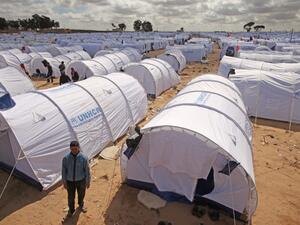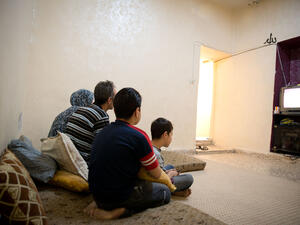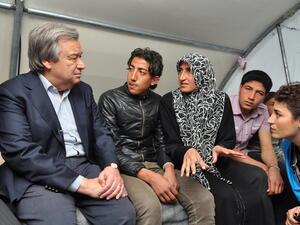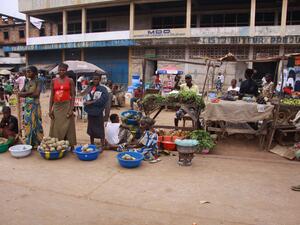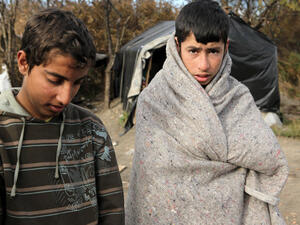Surviving in the city
Surviving in the city
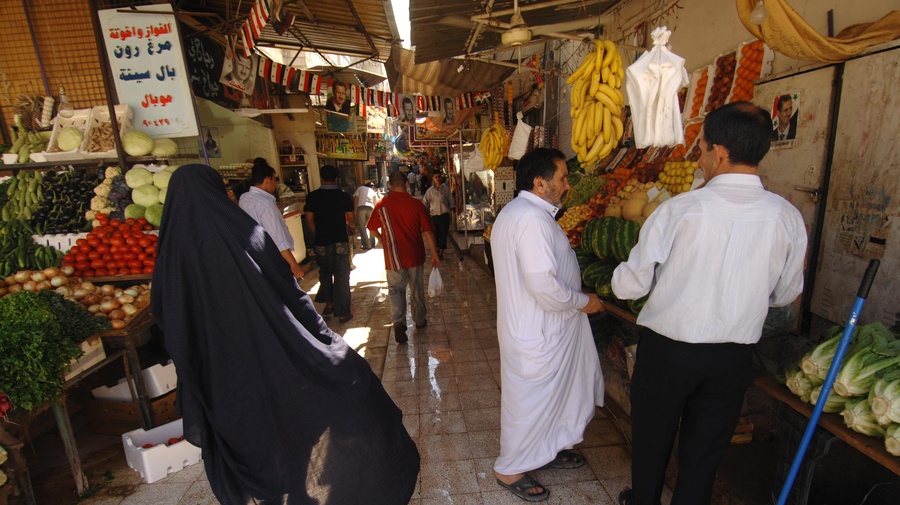
Iraqi urban refugees and Syrians at a busy market in Damascus.
GENEVA, July 27 (UNHCR) - "Nothing really prepared us for this operation, so we had to adopt an unconventional approach to the way we did business." Those are the words of a UNHCR staff member in the Syrian capital of Damascus, referring to the challenge of responding to the massive Iraqi refugee exodus that has taken place since 2006.
As explained in "Surviving in the City," a new report from UNHCR's Policy Development and Evaluation Service (PDES), the organization is familiar with the demands of coping with large and sudden movements of refugees. But in most cases, those people are housed in camps.
The unique feature of the Iraqi situation is that the vast majority of exiled Iraqis have settled in the cities of neighbouring and nearby states, especially Amman in Jordan, Beirut in Lebanon as well as Damascus and Aleppo in Syria.
The report points out that UNHCR's task in these countries was complicated by a number of other factors, including its limited presence in the Middle East, the absence of refugee laws in the three countries of asylum, as well as their preoccupation with the Palestinian refugee question.
Despite these difficult circumstances, the organization's Iraqi refugee operation has many achievements to its credit. Taking advantage of international interest in the crisis, UNHCR mobilized substantial resources, rapidly scaled up its activities, deployed high-quality teams to the field and addressed the specifically urban characteristics of the exodus in an innovative manner.
Cash has been distributed to refugees by providing them with ATM cards. UNHCR has kept the Iraqis informed by means of SMS messages. Refugee women have been recruited to act as community outreach volunteers, encouraging other Iraqis to register with UNHCR and to benefit from the services it provides.
Opinion polls have been used to understand the needs and intentions of the refugees. And community centres have been establish to provide Iraqis and other city dwellers with an opportunity to meet each other, learn new skills and enjoy recreational activities.
As a result of these initiatives, as well as the generous admission policies adopted by Jordan, Lebanon and Syria and a substantial refugee resettlement programme, primarily to the United States, the protection offered to the uprooted Iraqis has improved over the past three years.
But the situation remains a fragile one. First, the gains that have been made could easily be reversed if negative developments were to take place in the political, economic or security environments.
Second, the majority of Iraqis do not have any immediate prospect of finding a solution to their plight. Most of them say that current conditions in Iraq prevent them from repatriating, while a significant number have no intention of returning there under any circumstances.
Only a limited number of the refugees can expect to be accepted for resettlement, and yet those who remain in the three countries of asylum have almost no prospect of integrating there or gaining secure residency rights, both of which have been ruled out by the authorities.
A final concern underlined in the PDES report derives from the very real prospect that the resources available to UNHCR will decline in the months to come. Other emergencies are now capturing the world's attention and the money available to humanitarian agencies may diminish as a result of the global economic crisis.
The question now looming over the operation is whether it will be possible to protect and support the Iraqi refugees, more than 250,000 of whom have now registered with UNHCR, in the absence of adequate funding.
By Jeff Crisp in Geneva
Click here to read the report.


